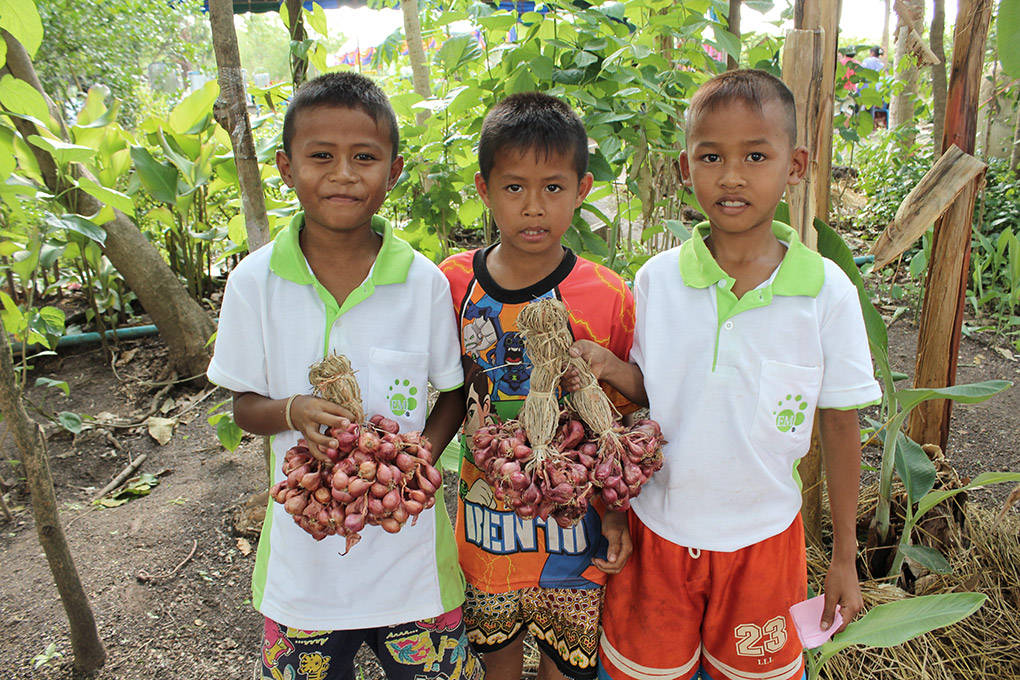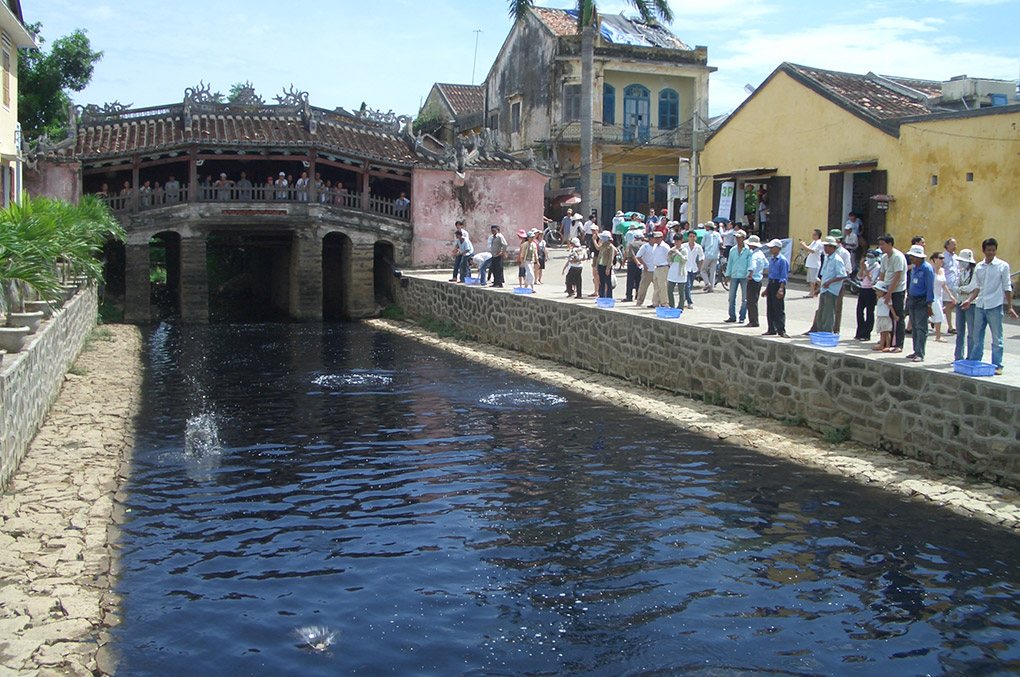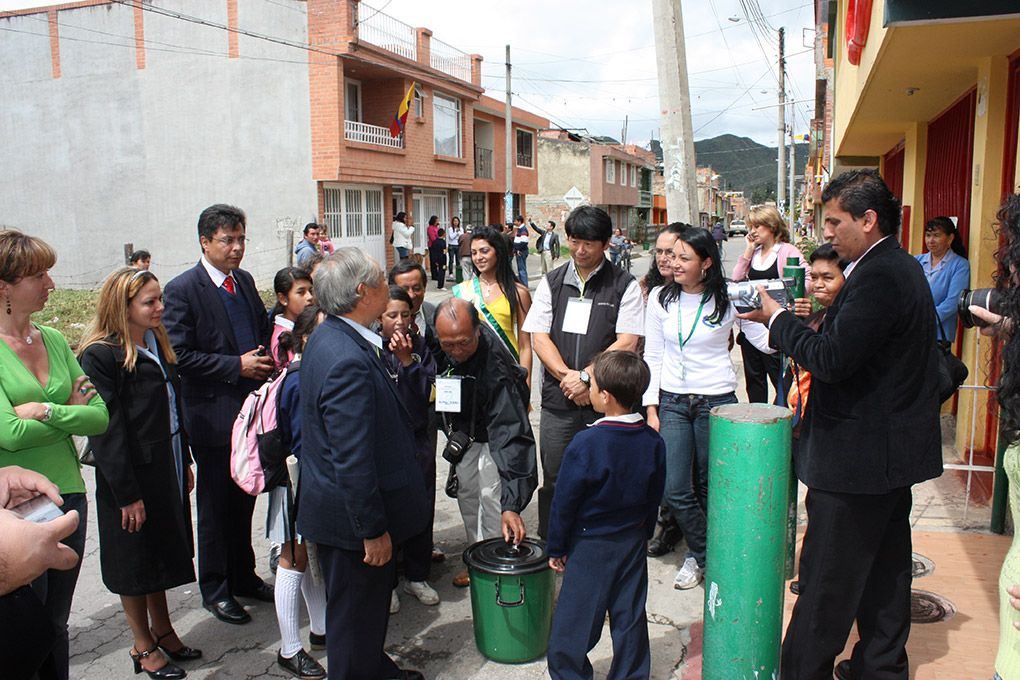Thailand
One example of a successful joint project is the program in Thailand designed to enhance the self-sufficiency of the economy, which was proposed by the King as a measure to help lift the economy out of depression in the 70s. This program has adopted EM to help the nation improve economic self-reliance by growing its own food through sustainable farming.
Read More »

Vietnam
In countries like Vietnam, programs involving EM products have brought forth a solution to the problem of foul odors emanating from urban waste processing centers and the conversion of organic waste into compost. The Department of Hanoi Transport and Urban Public Works, sponsored by UNFPA (United Nations Population Fund) to process waste in city buildings, produces 7,500 tons of organic fertilizer per year. Applying EM・1 to the waste before processing helps to suppress the foul odors, sparing workers in nearby buildings great discomfort. EM・1 is applied during the composting process as well, reducing concentrations of harmful gas produced by the garbage and lowering the level of airborne pollutants to within tolerable environmental standards as regulated by the government of Vietnam.
Colombia
It is well known that humans face serious environmental problems, such as garbage overload. EM has been employed to improve sustainability by facilitating the recycling of kitchen waste on a community basis. Organic matter can be easily fermented using EM・1 to convert it into organic fertilizer. This method is applied widely in various cities of Colombia where entire communities have learned how to recycle their own kitchen waste, diverting waste from landfills and turning it into valuable soil amendments.
Learn More »